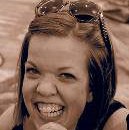- A
- A
- A

#Ableism
Ableism is a set of beliefs or practices that devalue and discriminate against people with physical, intellectual, or psychiatric disabilities and often rests on the assumption that disabled people need to be ‘fixed’ in one form or the other. Ableism is intertwined in our culture, due to many limiting beliefs about what disability does or does not mean, how able-bodied people learn to treat people with disabilities and how we are often not included at the table for key decisions.
Just like most forms of discrimination, ableism often shows its ugly face from nondisabled people with good intentions. Unfortunately, good intentions never solved any problems. So let’s put our good intentions aside and get to the root of what’s really going on. I believe much of ableism rests on the medical model of disability, in that we have first come to understand disability through the lens of a doctor- something is ‘wrong’ with this person and that ‘something’ needs to be fixed. This is how we are taught to think about disability. However, where we have interpreted the word “wrong” is where we have gone wrong. Just because something is different, does not mean it is bad. We live in a culture in which we have entire television series’ on the medical complications of different types of disabilities. I often hear nondisabled people ask people with disabilities, “What type of medical complications have you had? How many surgeries have you had?” While I’m proud of every surgery and scar I had/have, I also don’t believe my medical record is all there is to who I am. In an effort to shine a light on this form of ableism, I have recently started returning the question to these unsuspecting seekers of information by asking them for the details of their medical history, and find that they are a bit confused and dumbfounded by what to say in return. Further, I also believe this line of questioning also makes the assumption that no matter how many surgeries I have or have not had, they still haven’t solved the “problem.” Personally, I have carefully chosen my team of doctors and know they have solved all the MEDICAL problems that need solving. As for the social ones, we disabled people work on those every day and can ourselves claim to be the experts.
Secondly, ableism often shows up in how we have learned to treat people with disabilities and the language used to discuss us. As small children, many nondisabled people are taught to be ‘extra’ nice to people with disabilities: open the door for them, run to press the elevator button for them, ask if they need any help as they are crossing the street, etc. I’m assuming the good intention behind this lesson is to treat people with disabilities like anyone else, but by explicitly being ‘nice’ to this group of people specifically, what we’re really doing is pitying them based on the belief that they couldn’t do any of these things on their own and are completely helpless. This assumption itself is the root of the problem! Further, language itself is constantly reflecting this assumption of helplessness. When someone says a disabled person is “wheelchair bound,” for instance, it doesn’t give them much credit as a mover and shaker.
Last, but definitely not least, ableism was established and holds its ground when nondisabled people choose not to include people with disabilities at the table. Just getting to this table means thinking about meeting location, communication format, transportation, and the rest. Accessibility in each of these formats is key for any disabled person to not only be included, but to have a voice. If you had to climb even a single step, read anything that is not also available in braille, hear what is being said without the availability of an interpreter, or sit at a table that is over 4 feet tall, I guarantee you that the disabled voice is not being heard at your meeting.
The best way to de-root ableism in our everyday lives, is to ensure that there’s always a seat at the table for those who are like you and those who are not, but also checking ourselves on how we treat people with disabilities once they are at the table. As simple as this sounds, de-rooting ableism is often as simple as just treating disabled people like you would anyone else. Novel idea, I know.
Leah Smith is a writer, communications professional and disability advocate. Leah holds a Bachelor’s in Public Relations and a Masters in Public Administration and Policy. She has focused her career on creating access and equality for all. Leah currently resides in Philadelphia with her partner and two dogs.
Contact: Leah Smith